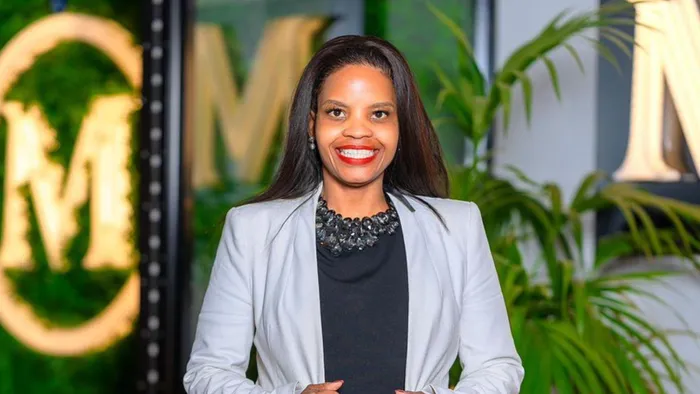BlackRock's tokenisation: A game changer for Africa's financial systems
Insight

Sebaga Matabane is a seasoned financial executive and derivatives expert and the founding patron of the Give to Live Foundation, which supports abused women and children across Africa.
Image: Supplied
IN a landmark move earlier this year, BlackRock — the world’s largest asset manager — launched its first tokenised fund on a public blockchain.
With more than $100 million (about R1.7 billion) in US Treasuries issued via tokenised assets, this is not just a fintech experiment. It’s a signal: the traditional financial system is moving on-chain.
While this development unfolded in the halls of Wall Street and crypto exchanges in the US, its implications extend far beyond Western markets. In fact, for Africa — home to the world’s fastest-growing youth population and one of the highest rates of mobile money adoption — this moment could be pivotal.
What is tokenisation and why does it matter for Africa?
Tokenisation refers to the process of converting rights to real-world assets, such as bonds, real estate, and fiat currencies, into digital tokens on a blockchain. These tokens can then be traded, transferred, or split into smaller units in a way that dramatically reduces friction, increases transparency, and enhances liquidity.
For Africa, tokenisation is not just a technological advancement; it is a financial lifeline.
Here’s what this could unlock:
- Fractional Access to Global Assets — Africans can invest in U.S. bonds or real estate with as little as $10, removing the entry barriers created by traditional capital markets.
- Digitised Government Infrastructure — Imagine local municipalities issuing tokenised green bonds to fund solar projects, attracting global investors via blockchain-backed transparency.
- Enhanced Remittance and Trade — Using tokenised stablecoins or assets, intra-African trade and diaspora remittances could be settled near-instantly with lower costs and greater reliability.
Why should South Africa lead this movement?
South Africa, with its progressive regulatory approach and advanced financial sector, is perfectly positioned to become a tokenisation gateway for Africa. The Financial Sector Conduct Authority (FSCA) has already declared crypto assets as financial products, creating a precedent for regulatory innovation.
However, the rise of on-chain finance via giants like BlackRock now demands bolder action:
- Establish a Regulatory Sandbox for Tokenisation — South Africa must launch pilot projects that test tokenised government securities, commercial real estate, and even township infrastructure bonds.
- Develop Custodianship Frameworks — Safe, locally governed custodial solutions are essential to protect African investors and attract institutional confidence.
- Expand Public-Private Collaborations — Crypto-native firms and traditional financial institutions must be encouraged to co-develop tokenised solutions that address African economic realities.
What BlackRock has initiated is more than a fund — it’s a preview of the future financial architecture. If Africa remains passive, it risks exclusion from systems being built without its input.
Tokenisation can:
- Democratise investment
- Accelerate infrastructure finance
- Boost trade and cross-border payments
- Provide transparency in public finance
However, this requires vision and leadership, not just in technology adoption, but in regulatory clarity, education, and public awareness.
Africa has long been seen as a passive recipient in global finance. This is our chance to change the narrative. We must not simply react to global trends — we must build our own platforms, shape our own standards, and lead the development of inclusive on-chain finance.
The blockchain era is not coming; it is already here. The only question is: Will Africa shape its place within it, or be shaped by others?
* Sebaga Matabane is a seasoned financial executive and derivatives expert. A passionate advocate for financial inclusion, she is also the founding patron of the Give to Live Foundation, which supports abused women and children across Africa.
** The views expressed here do not reflect those of the Sunday Independent, IOL, or Independent Media.